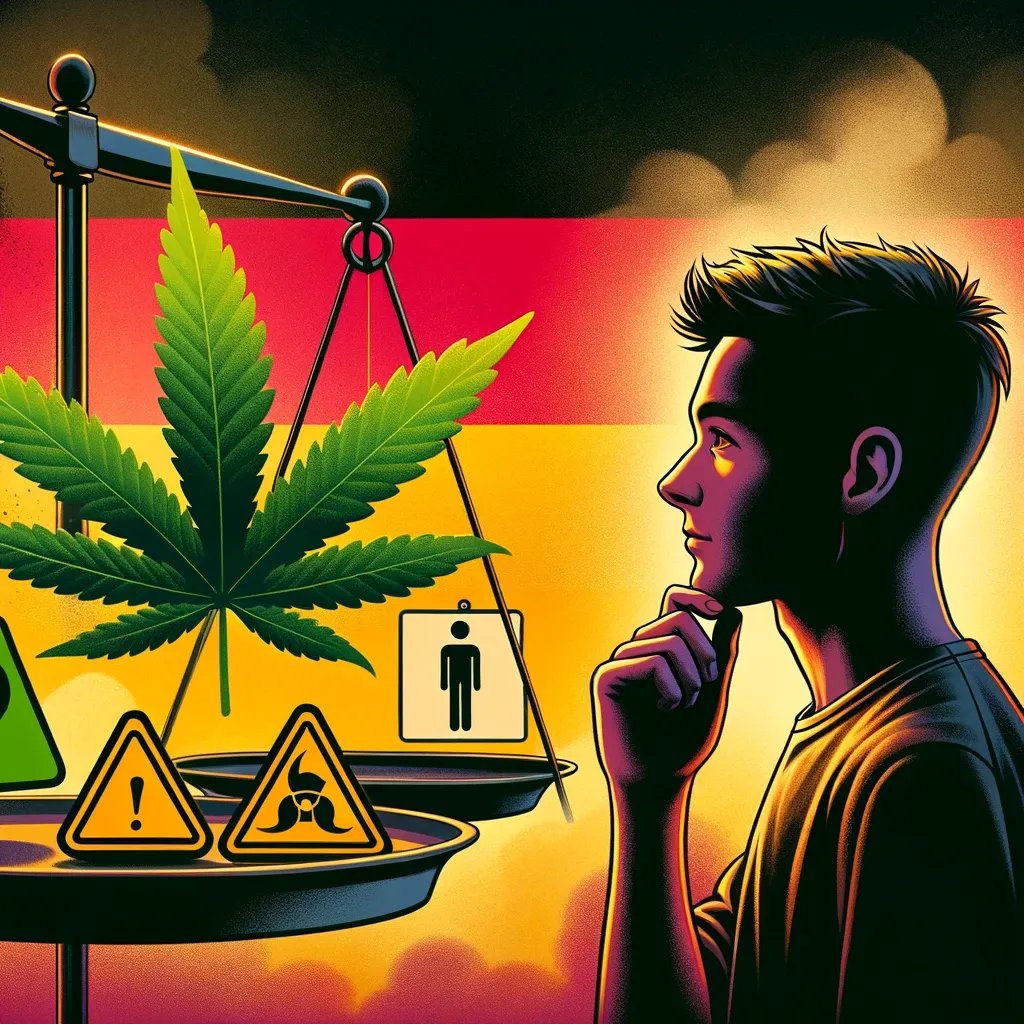Enjoy life wisely

The German parliament has legalized cannabis. But, as Die Zeit writes, responsibility is needed. Because the issue is sensitive, especially because of the health risks for young users.
Cannabis will finally be at least partially legalized: Parliament has decided so. People wish for a freer life. As for the prohibition of stimulants and drugs, it is like trying to "reduce railroad accidents by persuading passengers to stay at home," as stated in an article published in 1892 in the New York Times.
If the state declares a narcotic substance illegal, the police will search, confiscate, take users to court and penalize them. However, these methods must be proportionate. This has never been the case with cannabis. Society tolerates the fact that every citizen consumes ten liters of alcohol every year, that tobacco and cigarettes can be freely sold on street corners, and then chases 175,000 people every year who want to smoke. Prohibition bestows huge profits on organized crime and a huge burden on police and judges. It has been clear for decades that prohibition will not destroy cannabis. It's time to recognize that. That doesn't mean, of course, that legalization carries no risks. Nor even that the law just passed is perfect. It probably won't realize many of the possible benefits associated with legalization.
Will it make it easier for the courts? Judges are doubtful, given the complexity of the rules introduced. The biggest problem with cannabis is its serious danger to young people. If there is a predisposition or vulnerability in adolescents, it can increase the risk of psychosis, and the active ingredient (THC) has been found to affect adolescent brain development. Therefore, it is prohibited for use by those under the age of eighteen. Nevertheless, legalization may send a message that cannabis is not so dangerous. The father of the law, Social Democratic Health Minister Karl Lauterbach, considers cannabis harmful. But he said the purpose of the law is to "increase health protection." And that may indeed be the case. Consumption is still on the rise.
First of all, we need to recognize that smoking cannabis is already a reality. Even among teenagers, consumption has been growing for many years and prohibition does not change anything. On the contrary, people buy the substance from drug dealers and don't even know they are smoking it because it may be cut or mixed with synthetic cannabinoids.
14 May 2025
13 May 2025
14 May 2025

Now doctors and therapists, citing the experience of other countries, are warning that legalization will lead to an increase in cannabis use among young people. They cite a study by the International Narcotics Control Board (INCB). But the issue is much more complicated than it seems. The INCB report also points out that there are many different legalization models around the world, making it difficult to use data from one country in another and predict the effects of legalization based on that data. The Christian Democratic Union (CDU), for example, warns of an increase in cannabis poisonings among children after legalization in some U.S. states. But to be fair, the CDU also cites a reason: hemp bears that children accidentally eat. Their sale is not and will not be authorized in Germany.
What matters most is how legalization takes place. In Germany, it is much more restrictive: cannabis will not be sold, only personal cultivation or in "cannabis clubs" will be allowed. This has its disadvantages - casual consumers won't be able to legally buy it, for example - but it also has advantages: it won't create an industry that will minimize the risks of the substance with fun packaging and subtle advertising messages. Which, by the way, according to INCB, is one of the reasons why young people are using more cannabis since its legalization.
Recent data from Canada show that in many provinces the number of users aged 16-19 has increased six years after legalization. But the number was already growing before that. Another important aspect is quantity. Certainly teens who frequently smoke a lot of weed can have serious problems; studies even show marked changes in their frontal cortex. But can occasional use of joints cause harm? Research on this topic is scarce.
Teenage German alcoholics who drink alcohol every day are alcoholics who need help. But it does not occur to anyone to increase the age limit for alcohol consumption (in Germany it is the age of 16). Alcohol use, even as an initiation to adulthood, is too ingrained in society, and hopefully young people will learn to cope with it instead of banning it for everyone. And since cannabis is already among us, it makes much more sense to legalize it and create the conditions for its proper use. The young people who smoke it won't disappear without legalization.
Now let's talk about prevention. If someone abuses weed, it doesn't mean that after the first puff they are inevitably swept away in a drug haze as if possessed by the cannabis devil. Substance abuse has a thousand causes, from relationship problems, to domestic problems, to lack of prospects. Prohibition does not absolve adults of responsibility.
Comment
Popular Offers

Subscribe to the newsletter from Hatamatata.com!
Subscribe to the newsletter from Hatamatata.com!
I agree to the processing of personal data and confidentiality rules of Hatamatata











